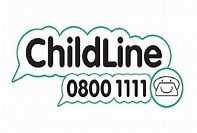SAFEGUARDING - KEEPING YOU SAFE
The safeguarding of children and young people is the responsibility of all adults. In Wath Academy this includes staff employed by the school, supply staff, staff commissioned or contracted from external services & agencies, volunteers, governors, parents/carers, and extended family members.
We all have a responsibility to ensure that children and young people feel safe and well at all times.
Within school this means that all aspects of the environment ensure that a child feels able to learn and develop in a safe environment. In order to fulfil this responsibility effectively, all practitioners should make sure their approach is child-centred. This means that they should consider, at all times, what is in the best interests of the child and be aware that children includes everyone under the age of 18.
Safeguarding and promoting the welfare of children is defined as:
- Providing help and support to meet the needs of children as soon as problems emerge;
- Protecting children from maltreatment, whether that is within or outside the home, including online;
- Preventing the impairment of children’s mental and physical health or development;
- Ensuring that children grow up in circumstances consistent with the provision of safe and effective care; and
- Taking action to enable all children to have the best outcomes.
At Wath Academy our Safeguarding Team is:
Assistant Principal & Designated Safeguarding Lead: Mr Davies
Deputy Designated Safeguarding Lead: Ms Smallwood
Safeguarding Officer: Mrs Haigh and Mrs King
Safeguarding Governor: Mrs Dickson
If at ANY TIME if you need to talk, please complete the following form and one of our safeguarding team will be in touch with you: Let's Talk About It.
Child Protection is a key aspect of safeguarding which is concerned with protecting children from abuse and maltreatment, and involves working with social care and/or the police when a child is deemed to be at risk of significant harm. There are 4 categories of abuse (click on each for further information):
Some of the signs of abuse, neglect and/or exploitation include the following indicators. However, it should be remembered that there may be a perfectly innocent explanation for any of these and it is important not to jump to conclusions. To this end our Pastoral and Safeguarding Teams will take any concerns seriously but ensure any enquiries are made in a sensitive manner:
- Changes in appearance including personal hygiene and weight loss
- Bruises and injuries, and evidence of pain or discomfort
- Clingy and/or fearful behaviour
- Changes in eating habits
- Uncharacteristic and/or secretive behaviour
- Problems with peer groups
- Changes in sleep patterns
- Self-harming behaviour
- Talk about suicide and/or death
- Changes in mood including prolonged anxiety, stress, fearfulness, being easily prone to tearfulness and/or tendency to overreact
- Loss of interest in social events and/or hobbies
- Deterioration of attention span and/or restlessness
- Evidence of age-inappropriate sexual knowledge
- Unexplained gifts and possessions
- Regularly absent from school
Many of the above may also be signs of problematic mental health. Wath Academy is committed to being alert to signs of abuse and/or problematic mental health and intervening early to safeguard children’s safety, welfare and wellbeing.
Wath Academy has also signed up to Operation Encompass.
This is a Police and Education early information sharing partnership which enables schools to offer immediate support for children and young people witnessing domestic abuse. Information is shared by the police with the Academy’s safeguarding team prior to the start of the school day following an incident of domestic abuse in the previous 24 hours or over the weekend which has been attended by police officers. This information enables appropriate support to be given, dependent upon the needs and wishes of the child. Children experiencing domestic abuse are negatively impacted by this exposure; domestic abuse has been identified as an Adverse Childhood Experience and can lead to emotional, physical and psychological harm. Operation Encompass aims to mitigate this harm by enabling schools to maintain a watchful brief, intervene with support if needed, and help to make the day a better one for children. Right click on the logo above for more information.
 Report Abuse in Education Helpline: 0800 136 663
Report Abuse in Education Helpline: 0800 136 663

Remove a Nude Image Shared Online
 Let's stop abuse together. (campaign.gov.uk)
Let's stop abuse together. (campaign.gov.uk)

